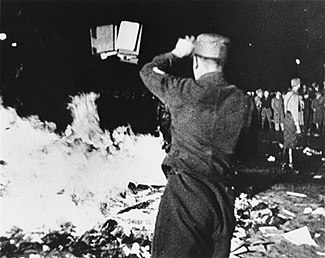
When I left on a short holiday, about 10 days ago, this fall’s municipal election in my home own looked rather dull. While the mayoral contest and the regional council races were shaping up to be competitive, the number of candidates running in our wards left several virtually uncontested and even on the verge of proclaimed winners. Within the span of my holiday, though, the picture changed radically. To quote a friend of mine:
“It’ll be democracy, after all!”
However, in the same span of time, Premier Doug Ford has cast a dark shadow on such things as representative government – at least at the municipal level. I learned, on my return, that Ontario’s new premier plans to table legislation that would cut the number of councillors at the City of Toronto from 47 to 25. The premier considers the size of municipal government as a major contributor to monetary waste in this province.
Mr. Ford also suggests the municipal body is dysfunctional. This assessment, I hasten to add, comes after he spent but one term as a sitting councillor at Toronto City Hall. Not exactly the voice of experience, I’d suggest.
But I’m not writing here either in support of preserving the 47 seats on Toronto city council, nor decrying the premier’s vision of economy. My fear is that the premier and those advising him have little or no comprehension of civics in Ontario.
For nearly 20 years, in my role as a journalism professor, each fall, I remember taking my first-semester reporting class out into the streets of Toronto. I walked with my students around a single downtown block, asking them to make note of every service they recognized as one delivered by the municipality. They returned with nearly 100 examples – everything from utilities to policing to building codes and pest control.
“What’s that say about the proximity of service to people?” I asked.
“The municipality provides the most essential services,” they said.
This past Monday, on CBC Radio, I listened to Melissa Lantsman, one of the new premier’s advisers, defending Premier Ford’s planned cuts. To placate Torontonians’ fears Lantsman suggested that the Progressive Conservatives would simply redraw the boundaries of Toronto’s municipal wards along the same lines as the existing provincial constituencies.
OK. Let’s have a look at what that means. Instead of answering 60,000 irate calls from Ward 37 (Scarborough Centre) residents about power outages, garbage pickup, transit service or snow removal, for example, the councillor would have to field nearly twice as many – about 115,000 – such calls. Or, closer to the premier’s home, the councillor representing the enlarged Ward 1 (Etobicoke North) would have to deal with queries on dog licences, lot surveys and potholes from 345,000 agitated residents as opposed to 118,000. Inevitably, as a consequence, that councillor would have to add office staff to accommodate the calls, not to mention the PR flaks to deal with the fallout. Where’s the economy or democracy in that?
The premier’s spokeswoman Lantsman went on to list the additional benefits of fewer councillors in Toronto. It would facilitate faster action on the issues in a council where, she said, “consensus doesn’t work.” It would mean fewer staff reports (in other words ignore the wisdom of civic experts). It would ensure a stronger mayor by concentrating power in a smaller, more exclusive executive council.
Since when does the notion of concentrated power either in a mayor or a tight-knit inner circle guarantee clear-headed thinking? Hasn’t that kind of autocracy created irreparable damage in municipalities such as Whitchurch-Stouffville? I thought we banned the Family Compact in Upper Canada in the mid-19thcentury. Or hasn’t the current provincial administration read any Ontario history lately?
A few weeks ago, I visited Berlin. I stood in awe of the famous Brandenburg Gate and passed the Holocaust Memorial. I even led a group of Canadians to the parking lot, beneath which once lay hidden the bunker in which Hitler committed suicide in 1945.
However, the one place that perhaps affected me – a writer – most profoundly, was a plaque posted at Bebelplatz, where in 1933 the National Socialist German Workers’ Party (the Nazis) burned books it said corrupted the truth. An inscription on the Bebelplatz plaque quoted exiled writer Heinrich Heine from a century before.
“Where they have burned books,” Heine wrote in 1821, “they will end in burning human beings.”
Last Friday, the last of those registering to run in the Uxbridge Township municipal election, paid their entry fees and signed the documents to run for mayor, regional chair, regional councillor, municipal council or education trustee. In the campaign to come, you’ll be asked to consider the way they present themselves, to evaluate their views on the issues, and finally to vote for the one you believe will provide those services best.
But as you do, I ask you to be equally mindful – even 2,500 years after democracy was born – just how fragile those rights remain.